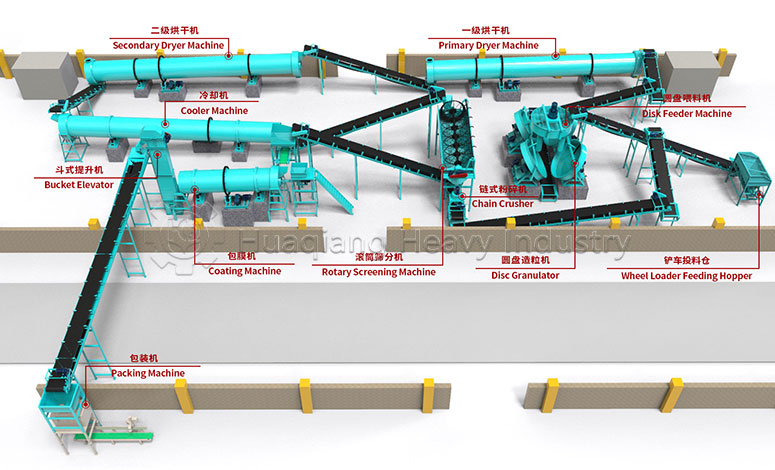The key benefits of bio-organic fertilizer production lines for processing chicken manure
As livestock and poultry farming scales up, chicken manure pollution has become a major environmental challenge. Modern bio-organic fertilizer production lines use scientific processes to transform chicken manure into high-quality organic fertilizer, achieving both economic and environmental benefits.
1.Efficient and Harmless Treatment
Chicken manure contains pathogens, parasite eggs, and antibiotic residues, posing risks if applied directly. These production lines use high-temperature aerobic fermentation (maintained at 60-70°C for 7-15 days) to thoroughly kill harmful microorganisms and break down antibiotics, stopping pollution at the source.
2.Effective Nutrient Retention
Traditional composting loses up to 50% of nitrogen. Bio-organic fertilizer production lines, using smart temperature control combined with microbial agents, boost the organic matter conversion rate from chicken manure to over 60%. They also lock in nutrients like nitrogen, phosphorus, and potassium.
3.Thorough Odor Removal
Foul gases like ammonia and hydrogen sulfide produced during manure fermentation are over 90% eliminated using combined bio-deodorizing towers and sealed fermentation tanks. This effectively solves odor complaints around farms.
4.High Resource Utilization Rate
One ton of fresh chicken manure can produce 0.4-0.5 tons of quality organic fertilizer. At market prices of 600-800 CNY per ton, a single 10,000-ton annual production line can generate 4-6 million CNY in extra yearly revenue.
5.Adaptability to Various Models
The production lines suit large-scale operations (supporting farms with 100,000+ chickens) or regional centralized processing for smaller nearby farms. They can also incorporate functional bacteria (like Bacillus subtilis) to produce specialized organic fertilizers as needed.
In summary, bio-organic fertilizer production lines not only solve chicken manure pollution but transform waste into valuable assets, boosting both ecological and economic returns.
